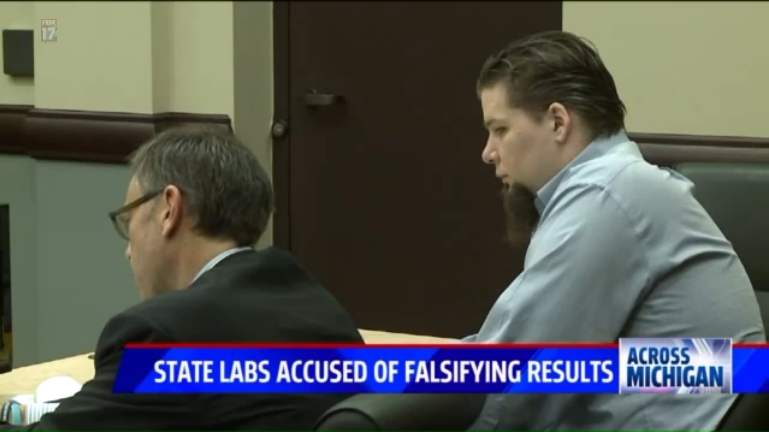The federal U.S. Sentencing Commission (USSC) has approved a revised amendment to sentencing guidelines, advising judges to adopt a more lenient approach towards prior marijuana possession offenses.
Members of the commission voted to approve a range of amendments to the current guidelines, incorporating a multi-part revision of criminal history.
This revised version now encompasses cannabis possession as a compelling illustration of an offense that typically necessitates contemplation for sentencing discretion.
As it currently stands, federal judges are instructed to consider previous convictions, which include cannabis offenses at the state level, as aggravating factors when determining sentencing for new cases.
But as legalization of marijuana expands to more states, advocates have been advocating for revised guidelines to prevent an individual’s marijuana-related record from contributing criminal history points that could result in harsher sentencing.
The proposal does not aim to completely eliminate marijuana convictions as a factor in criminal history. However, it suggests modifying the commentary within the guidelines to consider instances where a downward departure from the defendant’s criminal history may be appropriate, specifically mentioning sentences resulting from possession of marijuana offenses.
“While marihuana remains a Schedule I controlled substance under the federal Controlled Substances Act (CSA), subjecting offenders to up to one year in prison (and up to two or three years in prison for repeat offenders), many states and territories have reduced or eliminated the penalties for possessing small quantities of marihuana for personal use,” it notes.
The term ‘downward departure’ refers to situations where federal judges exercise their discretion to impose sentences that are below the recommended minimum under current guidelines.
It is crucial to recognize and explicitly acknowledge that mere possession of cannabis, without any intent to sell or distribute it to others, presents a compelling case that warrants leniency in sentencing.
By doing so, we uphold the principle of fairness and ensure that appropriate discretion is exercised in such circumstances.
USSC’s report in January exposed a disturbing reality: countless individuals faced harsher federal prison sentences as a consequence of their prior convictions on cannabis possession charges in states that have since enacted reforms to marijuana laws.
The revised guidance is on track to be presented to Congress by May 1 2023, and once accepted without opposition from lawmakers, the amendment will officially take effect on November 1.
Follow up…
More Posts

Judge dismissed felony charge against medical marijuana patient Max Lorincz
OTTAWA COUNTY, Mich. – After 16 months of a criminal and family court battle, an Ottawa County Circuit Court Judge dismissed wrongful felony charges against a Spring Lake father and card-carrying medical marijuana patient for having “synthetic THC.” Friday Max...

Southfield attorneys accuse MSP Crime Lab of negligence and incompetence
Two local attorneys have filed a formal complaint against the Michigan State Police Crime Lab, suggesting the agency should be made into an independent entity, but state officials have refuted the accusations of negligence and incompetence. Southfield-based...

Forensic scientists blast State Police crime lab THC policy as man fights to get son back
Maxwell Lorincz lives in Spring Lake near Lake Michigan with his wife and their six-year-old son. At least, they did live with their son, until a year and a half ago. They lost custody of him after Lorincz was charged with a felony for possessing synthetic THC....

People v Redden & Clark – MI Medical Marijuana hearing – February 20 2013
During this February 20, 2013 hearing, Assistant Oakland County Prosecutor Beth Hand notified the court that her office is contemplating filing criminal charges against a medical doctor for his involvement in certifying two medical marijuana patients, Robert Redden...

Medical marijuana lawyers want state crime lab moved out of Michigan State Police
"The attorneys claim the policy change is leading to unfair felony charges for patients who would otherwise face misdemeanors." Posted on MichiganRadio.org A group of criminal defense attorneys says the Michigan State Police (MSP) should no longer...

Defense attorneys seek fed inquiry of MSP crime labs
Southfield — Three defense attorneys are asking the federal government to investigate the Michigan State Police crime laboratories, alleging misconduct in their testing for pending drug cases. Southfield defense attorneys Neil Rockind and Michael Komorn, along...

MI Cops Change Policy So They Can Falsely Imprison Legal Pot Smokers
In 2008, an overwhelming majority of Michigan voters approved legislation to legalize marijuana for medical use in the state. With nearly 50,000 Michigan residents arrested and incarcerated each year for controlled substance violations, the state’s prison industrial...

Attorney Alleges Authorities `Bend The Science’ To Elevate Marijuana Cases
MIRS-Michigan Independent Source Of News and Information Friday Nov 6, 2015 Maxwell LORINCZ, of Spring Lake, says a fingerprint of oil on an empty plastic container led to his arrest on a drug charge on Sept. 24, 2014. Now, a year later, the case that might have...

Drug felonies without credible proof? — Allegations of politicking in state police crime labs
GRAND RAPIDS, Mich. – First on FOX 17, we broke serious allegations that state police crime labs are being told to falsely report marijuana test results. This is resulting in misleading lab reports that an attorney claims creates felonies without real proof. ...

Attorney: Crime labs ‘falsified’ marijuana reports
A Southfield lawyer alleges the Michigan State Police crime labs have “falsified lab reports on marijuana statewide” and he’s asking a judge to dismisses charges lodged against a client. Michael Komorn, who also represents defendants in Livingston County, said...











